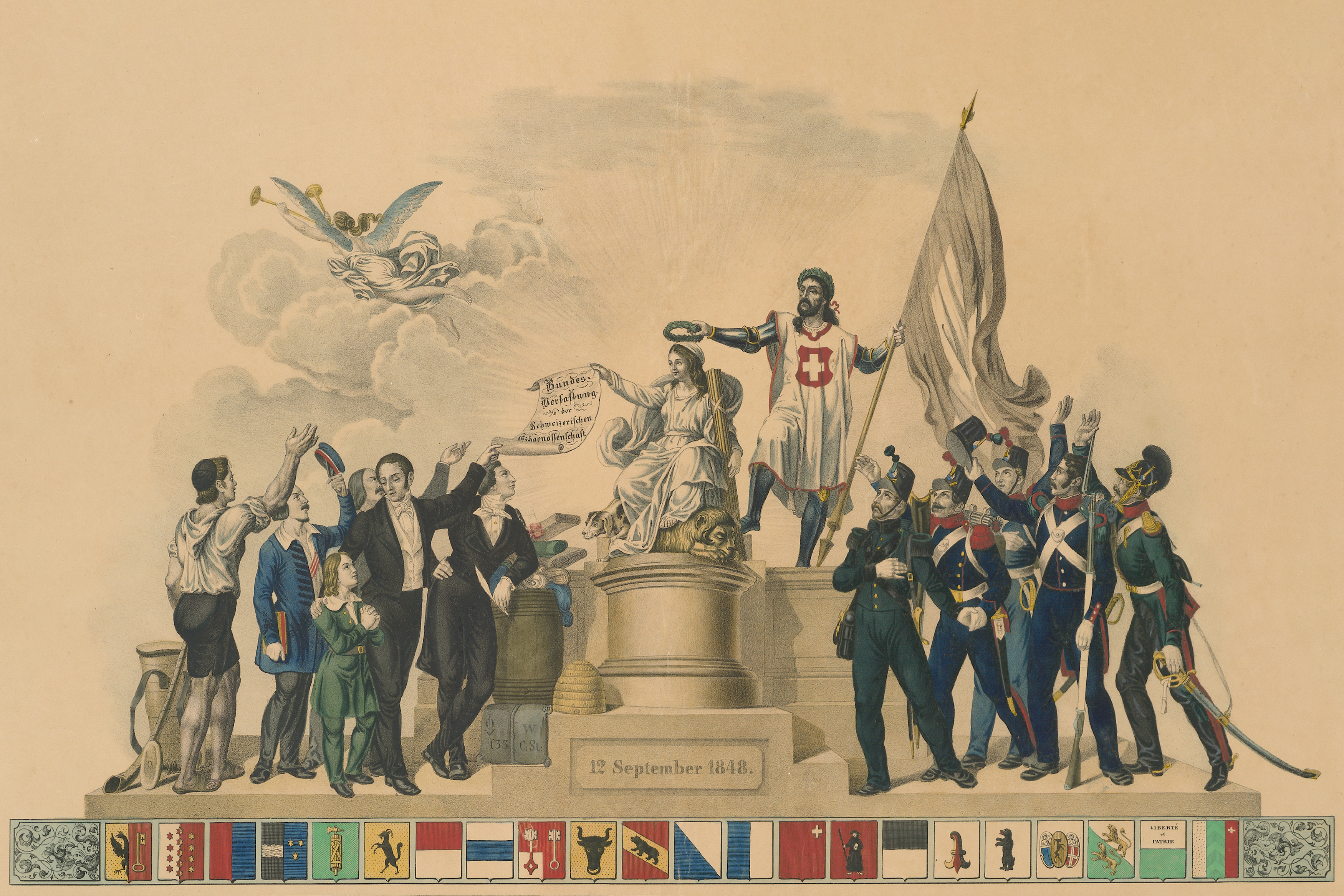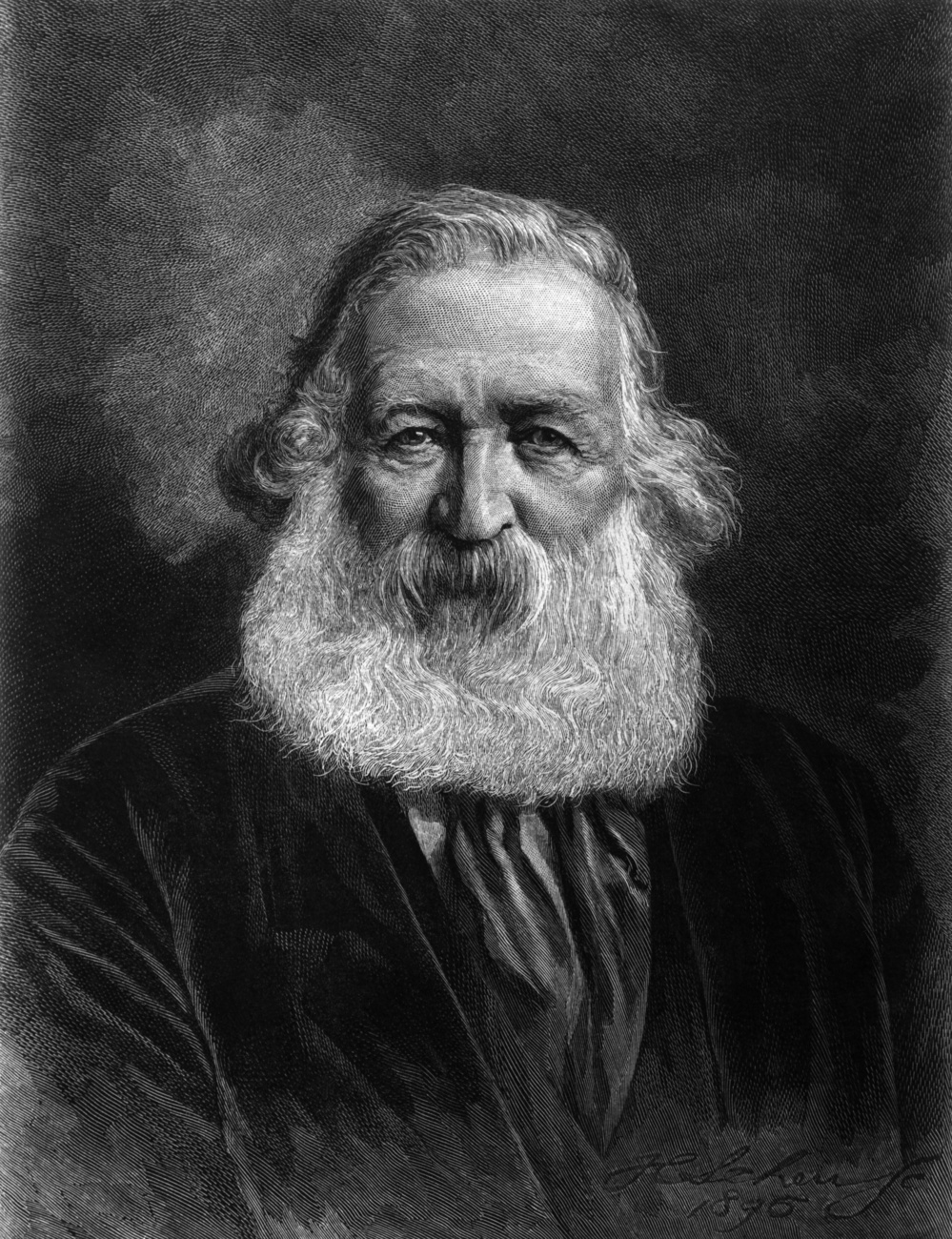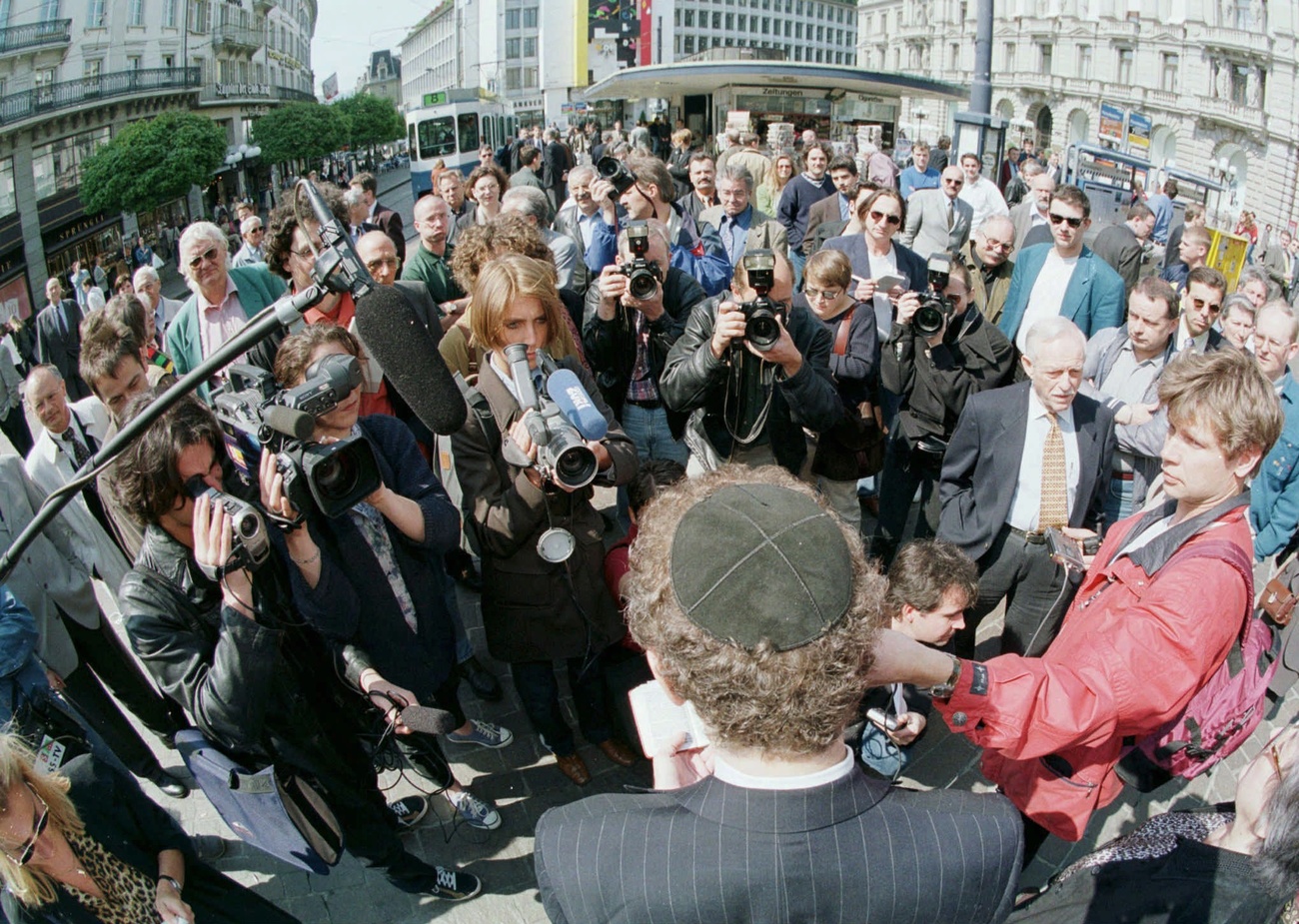

Sister republics: Switzerland and the US
Until the early 20th century, the US and Switzerland were known as “sister republics”. SWI swissinfo.ch reviews the history of the concept and explores the links that still bind these two very dissimilar countries today.
On November 5, 2024, the United States will elect a new president or – for the first time – a new female president.
This presidential election is described by both sides as destiny changing. In fact, the result could have a lasting impact on the country. This is in stark contrast to the Swiss government, which has to reckon with many of its decisions being challenged via direct democracy.

More
Trump, Biden and hatred: how US polarisation affects Americans in Switzerland
“Maybe a country with 8 million people is less polarising than one with 330 million,” said Tariq Dennison, an American, in an interview with SWI swissinfo.ch. He is a proud Republican voter who lives in Switzerland.
The US stretches across a whole continent. Switzerland, with its area of 41,300 square kilometres, is no bigger than the states of Massachussetts and Connecticut combined. Despite these differences, the two countries provide fertile terrain for comparison.
Switzerland and the US are just not in the same league. Nonetheless, the two nations have a common origin in the liberal thought of the Enlightenment. They have also influenced each other more than once in their history.
Enlightenment ideas
The ideas of state and community which shaped the origins of both countries are actually quite similar. Swiss thinkers like the 18th-century Geneva philosopher Jean-Jacques Burlamaqui shaped the ideas of the American founding fathers.

More
Sister republics: what the US and Switzerland have in common
The US bicameral parliamentary system in turn became a model for Switzerland when its modern federal republic was founded in 1848. In 1864, tens of thousands of Swiss signed a document marking their sorrow at the death of Abraham Lincoln and expressing their sympathy to the people of the United States.
The historic ideas are still at work today. A high rate of gun ownership and interest in shooting is common to this country and the US. It is based on the notion that citizens (originally just male) should have the means to defend themselves.

More
Swiss firearm laws: How Switzerland combines a passion for guns with safety
Swiss emigration to the US
Our common history is due not only to ideas, however, but to the movement of people. Between 1700 and 2000 about 460,000 Swiss emigrated to the US. They brought along their culture and traditions, and gave a particular character to some regions of their huge adopted country.
Among that group were individuals who left their own stamp on history. One example was Albert Gallatin. He was the longest-serving American Secretary of the Treasury (from 1801 to 1814), and he was originally from Geneva. A more recent example was psychiatrist and explorer of near-death experiences Elisabeth Kübler-Ross. In 1958 she emigrated from Zurich and developed her five-stage model of the grief process while working in the US.

More
How centuries of Swiss emigrants left their mark on the US
Among those who tried their luck in the New World during the 19th century was Swiss socialist and cooperative pioneer Karl Bürkli.
His dream of establishing a better way for people to live together in the utopian settlement of La Réunion in Texas turned out to be a failure. But then Bürkli went back to live in Zurich and shaped political life there. He was an early advocate of direct democracy with people’s initiatives and referendums.
The sister republics and direct democracy
Bürkli’s book calling for direct democracy was translated into English and became a bestseller in the US. It influenced the 1900s movement that established the mechanism of initiatives and referendums in a number of American states.

More
The Swiss who taught Americans about direct democracy
The US along, along with Switzerland, has held the largest number of popular votes to date – though at a state, not at a federal level.
Geneva political scientist Julien Jaquet has researched People’s Political Power in the Sister Republics of Direct Democracy in his thesis of that name. Jaquet found that in the US there are more such popular votes held in jurisdictions where there has been a pattern of electoral gerrymandering, and where there is a considerable ideological gap between elected representatives and voters.
Jacquet told SWI swissinfo.ch that the increasing polarisation in the US could be reduced with a direct democracy mechanism. Three states are currently voting on introducing such a system at the same time as the presidential election; three others already have it.

More
How the US and Switzerland became direct democracy ‘sister republics’
What remains of the sister republics idea?
Relations between neutral Switzerland and the US, which long followed a policy of non-intervention in European affairs, were based on common political idealsExternal link. Indeed, the US at one point played a decisive role in making Switzerland (Geneva in particular) a centre of international negotiation.

More
How America shaped Geneva’s international role
This changed in the years after the First World War. Though Switzerland has represented the interests of the US at times – as in negotiations with Iran – key issues in international politics have often seen them on opposite sides. In 1941, to begin with, the US called upon Switzerland to impose sanctions on Nazi Germany. Fifty years later, there was the scandal of the unclaimed Swiss bank deposits from the war years.

More
Five events that shaped contemporary Swiss-American relations
However, the brief periods of tension were not able to undermine the fundamental sympathies between the two democracies in the long term.
At the end of September 2024, Swiss Foreign Minister Ignazio Cassis appealed to this shared history in a speech at an event in New York at the invitation of US Secretary of State Antony Blinken: “From the 17th century to the present day, our countries have influenced each other. We are sister republics…”.

More
Latest US democracy promotion efforts spark Swiss interest
Today, American and Swiss interest in each other is mainly at the level of popular culture. Whereas American towns and cities with a strong Swiss background celebrate Carnival, 45,000 Wild West fans gather at the Interlaken Trucker and Country festival in the Bernese Alps.

More
‘Security here, freedom there’ – insights from a US trucker festival in Switzerland
Democracy in both countries confronts the challenges of digital globalisation. In the run-up to the American presidential election in November there have been so many fake videos and news reports going around that 20 states have adopted measures to curb this trend. The US Department of Homeland Security has warned of the potential for the election to be disrupted by fake news generated by Artificial Intelligence. Switzerland – with its high frequency of referendums – seems particularly vulnerable to that kind of AI manipulation.

More
US disinformation surge rings alarm bells for Swiss direct democracy
The two countries have shaped each other in several ways over the centuries of their existence as republics. Do you think they can still learn from one another? Take part in the discussion:
More
Edited by David Eugster
Adapted from German by Terence MacNamee/ds
This article was updated in the light of the fact that US Secretary of State Antony Blinken did not attend the event in New York in September where Swiss Foreign Minister Ignazio Cassis used the phrase “sister republics”.

In compliance with the JTI standards
More: SWI swissinfo.ch certified by the Journalism Trust Initiative































